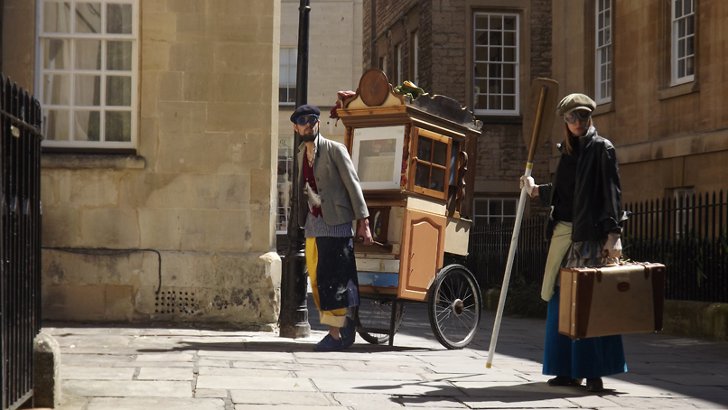Founded in 1948, the Bath International Music Festival was one of England’s leading music events. However, some people perceived it to be elitist. They thought that the festival was out-of-touch with the needs of a younger local audience. The Bath Fringe Festival was supposed to be a youth-oriented alternative featuring contemporary and experimental genres and forms of art. Since then, the Bath Music International Festival has merged with the Bath Literature Festival to form the Bath Festival, whereas the Bath Fringe Festival remains one of the oldest continually operating festivals in England.
The inaugural 1981 fringe festival was held with the support of Bath City Council. The event was a success, but the festival grew continually smaller over the following years until by the early 1990s it hosted less than a dozen events. A change was required and it was a new team that brought this change.
In 1991, the Bath Fringe Festival was revitalized by a group of local artists, promoters, venue managers and audience members. Today, it is one of the major music and arts festivals in South West England, alongside Glastonbury Festival, WOMAD UK (also known as WOMAD Charlton Park) and the Green Gathering.
Like most fringe festivals, the Bath Fringe Festivals is a non-commercial event run by volunteers that exists thanks to sponsors and donations. Artists are not paid for their performances but they don’t mind because they don’t come here for money. The opportunity to showcase their talent and skills in front of an interested audience is what attracts performers to fringe festivals, as well as their warm and informal atmosphere.
The Bath Fringe Festival takes place on and around the late May Bank Holiday, running for 17 days in late May and early June. It includes about 200 events in dozens of venues, showcasing different forms of art, from music to theatre to visual arts. Event categories include Street & Outdoors, Theatre & Cabaret, Music, Comedy & Spoken Word, Circus & Dance, Kids’ Events, Walks & Talks, and Film, Multimedia, Experimental. Some of the events are free, while others require admission tickets.

Photo: futuremuseum.wordpress.com




